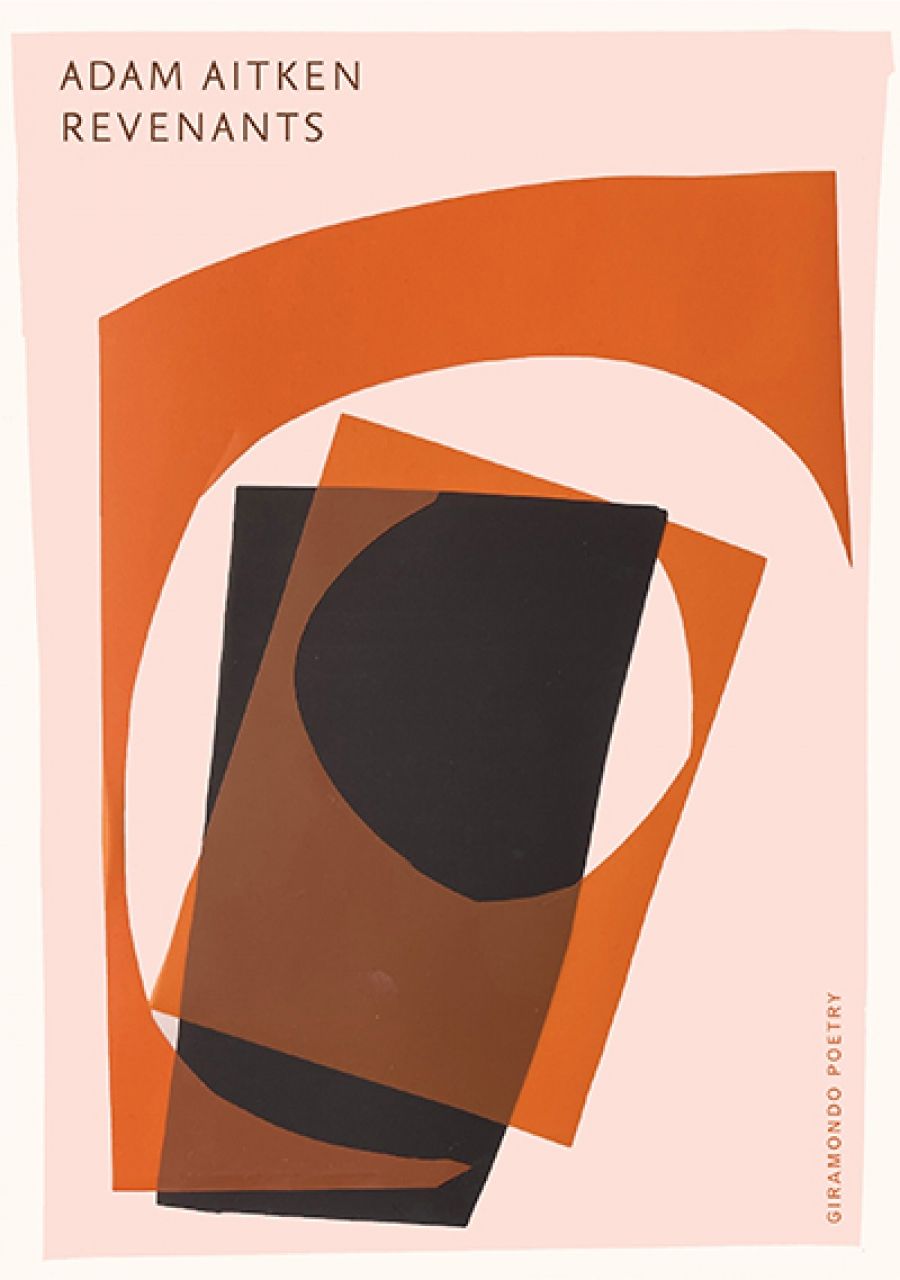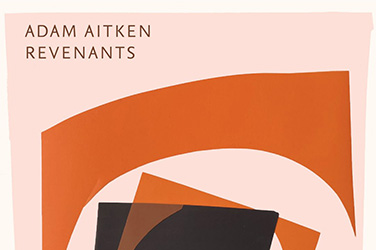
- Free Article: No
- Contents Category: Poetry
- Review Article: Yes
- Article Title: Souveniring absences
- Article Subtitle: An award-winning poet’s seventh collection
- Online Only: No
- Custom Highlight Text:
Since his first collection, Letter to Marco Polo (1985), Adam Aitken has been at the forefront of the diversification of Australian poetry as it moved, slowly but irreversibly, to incorporate multicultural and transnational voices. Aitken has always been a world citizen. He was born in London in 1960 to an Anglo-Australian father and Thai mother, with his childhood thereafter spent between the United Kingdom, Thailand, Malaysia, and Australia. As a young man, he attended Sydney University and embarked upon a long career as a poet, editor, and teacher which was recently recognised with the 2021 Patrick White Award.
- Article Hero Image (920px wide):

- Article Hero Image Caption: Adam Aitken (photograph via Giramondo Publishing)
- Alt Tag (Article Hero Image): Adam Aitken (photograph via Giramondo Publishing)
- Featured Image (400px * 250px):

- Alt Tag (Featured Image): Revenants - Adam Aitken cover copy
- Book 1 Title: Revenants
- Book 1 Biblio: Giramondo, $24 pb, 96 pp
- Book 1 Readings Link: booktopia.kh4ffx.net/KeGPPa
Revenants, Aitken’s seventh collection, is divided into three untitled sections. The first two negotiate the past and present in Malaysia, Thailand, Indonesia, Cambodia, Australia, and Hawai’i. The third section, like Aitken’s prior collection Archipelago (2017), is set mainly in his adopted France. A revenant, derived from the French revenir, is one who returns from a long absence or after death as a spirit. There are three curious ‘Revenants’ poems towards the end of the collection, but returning travellers and spirits (and the poet’s returnings to them) appear throughout. As we learn in ‘Sincerity’, Aitken’s father is reaching the end of his life, and Revenants begins with a series of poems crafted from his unnamed father’s letters as a young Aussie ‘ad man’ in 1950s Singapore:
You got drunk in ’57,
fell in love in ’58.
At the Foreign Correspondents Club
you wagered on a horse with an Irish name.
The stake was Cognac and cigars.
Last week you swapped the lucky digger’s hat,
your grandfather’s, for Dutch clogs.
No luxury you can’t have:
you push a button
(I imagine – myself as you)
and ‘a boy’ runs into the room,
lighter at the ready.
(‘Cognac and Cigars’)
Aitken’s memoir, One Hundred Letters Home (2016), featured earlier versions of these poems. In it, Aitken reveals that since childhood he has been souveniring his father: ‘He was so often absent. I became the kind of son who replaced a real father with images, and I did this by carrying in my pocket tokens to remind me of him … golf balls, his fountain pen.’
Repossession and repression are key themes as the early focus of Revenants drifts from his father’s distasteful comforts within a lingering British colonial shadow to life under army rule in Bangkok, where his parents first met (‘Martial [Marshall?] Sarit Cleans Up Bangkok, 1959’; ‘The Suspect’). The second section of Revenants starts with an aching vigil beside his father (‘Sincerity’), but then gravitates to his unnamed mother by way of his own schoolyard experiences of racism:
I remember the school ground:
eager to kill, I punched him, but gently, diplomatically,
orientally.
Why didn’t I just
poison his sandwich?
Named the Inscrutable I was angrier and more silent
than I looked.
In private moments I would
devise sermons on fear and fathers
in the voice of my mother.
Having never given up
loving you, you became
the template of my becoming.
(‘The Far East’)
One Hundred Letters Home locates this incident in Perth, not long after his family relocated to Australia in 1968. Here, an eight-year-old Aitken found that he and his brother had to answer for their misidentification as Japanese one moment and Chinese the next, while their father sought work in Sydney (another Far East) and their mother doubted her Australian citizenship.
Such is the emotional heft of these intergenerational pieces that Revenant’s mid-collection shift to fresh locales comes as some relief. Three Hawai’i poems (‘The Day Danno Died’, ‘Ala Moana’, ‘Weather Report’), for example, more freely inhabit the contemporary world and Aitken’s own independent experiences within it. The third section continues in this vein and explores Aitken’s interest in art and artists from Monet to the prehistoric walls of the Occitan caves in Southern France. There are idyllic scenes of day-to-day life in ‘Seasonal Domestic’, ‘Vespers’ and the delightful ‘Village Cat’ (‘She comes to me / in a dream on four legs, / Her boundaries have / become my own’). Aitken’s works often have a languidly observant tone which some readers will relish and others may grow impatient with, but the poet’s restraint, craft, and humility ensure that those who travel with him are rarely unrewarded.
Revenants is profoundly transnational, drawing upon Aitken’s multicultural childhood and his adult life divided between Australia, Southeast Asia, the Pacific, and France. In addition to the French poems of the final section, there are three unlocated poems: ‘Revenants 1’, ‘Revenants 2’, and ‘Revenants Again’. Revealing as little as their titles, the short lyrics feature three sets of revenants: the ghosts of peasant children, a woman lost in a dream, and indistinct yet powerful presences which implore the poet to ‘Cast off, troubadour, / Stumble into the dream / And get well soon.’
All three pieces are stunningly un-Aitkenlike, and they promise much about the poet’s future direction. The trouble is, however, that such an abrupt about-face in style and substance can’t be satisfyingly achieved in miniature. The ‘revenants’ poems deserve their own section or collection; they need more room to tease out what they are and aren’t, their moods and modes of playfulness and revelation. More extended revenant sequences, such as those in Graeme Miles’s Infernal Topographies (2020), show what can be achieved when more space is granted to such presences. If Aitken expands this series in future, it would prove a radical departure which might provoke some fruitful creative tension with his signature fusion of situatedness and in-betweenness. As it stands, the three poems only hint at what the poet might achieve when he decides to disrupt situatedness itself and inhabit a less literal in-betweenness. Revenants can be enjoyed as an independent work or as part of a longer continuum which may be entering an intriguing new phase.


Comments powered by CComment